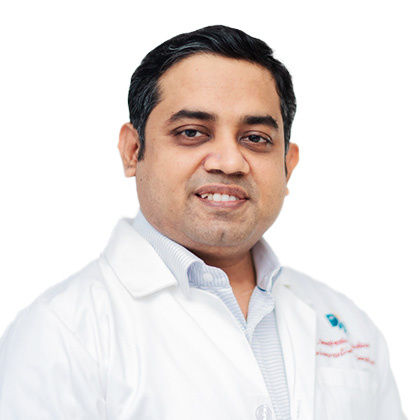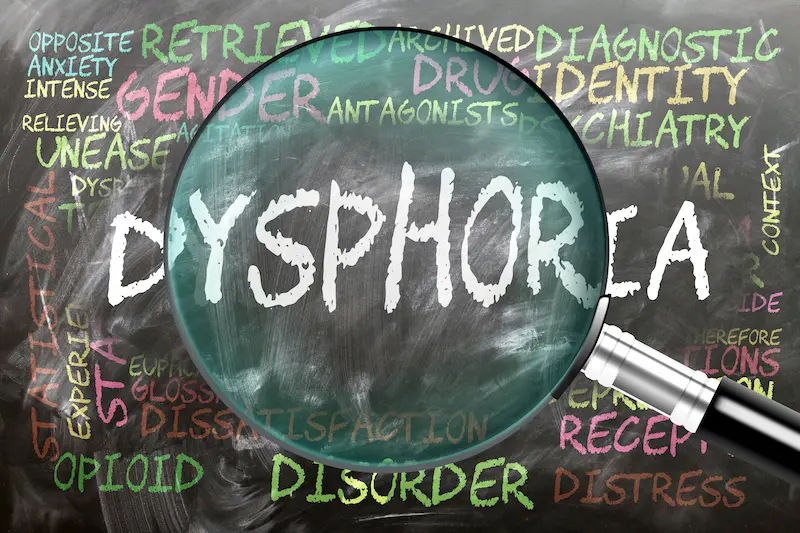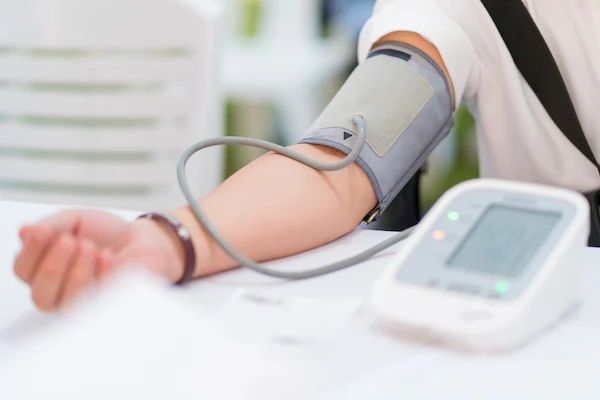Understanding Complete Heart Block
A complete guide to Complete Heart Block. Learn about its causes, key symptoms, and effective treatments, including pacemaker implantation.

Written by Dr. Vasanthasree Nair
Reviewed by Dr. D Bhanu Prakash MBBS, AFIH, Advanced certificate in critical care medicine, Fellowship in critical care medicine
Last updated on 13th Jan, 2026
.webp?tr=q-80,f-webp,w-350,dpr-2,c-at_max 700w)
Introduction
Heart health is vital for overall wellbeing, and sometimes, the heart’s electrical system doesn’t work as it should. One such condition is Complete Heart Block (CHB), also known as third degree atrioventricular (AV) block. If you or a loved one has been diagnosed with this condition, it’s natural to have questions and concerns. This article will help you understand what Complete Heart Block is, its symptoms, causes, and how it can be managed effectively.
What is a Complete Heart Block?
The heart has an electrical system that controls its rhythm, ensuring it beats in a steady, coordinated manner. In Complete Heart Block, this electrical signal is completely blocked between the upper chambers (atria) and the lower chambers (ventricles). As a result:
The atria beat at their own normal rate.
The ventricles beat at a much slower rate because they rely on a backup electrical signal.
This can lead to a dangerously slow heart rate, making the heart less efficient at pumping blood to the body.
Symptoms of Complete Heart Block
Some people with CHB may not have noticeable symptoms, especially if the heart’s backup system is working well. However, common symptoms include:
Dizziness or lightheadedness
Fainting (syncope)
Extreme fatigue or weakness
Shortness of breath
Chest pain (angina)
Palpitations (feeling like the heart is skipping beats)
Confusion or difficulty concentrating (due to reduced blood flow to the brain)
In severe cases, CHB can lead to cardiac arrest, making it a serious condition that requires medical attention.
What Causes Complete Heart Block?
Several factors can lead to CHB, including:
1. Aging – The heart’s electrical system can deteriorate over time.
2. Heart disease – Conditions like coronary artery disease or previous heart attacks can damage the heart’s electrical pathways.
3. Heart surgery or procedures – Some surgeries can accidentally affect the heart’s conduction system.
4. Infections – Myocarditis (heart inflammation) or Lyme disease can interfere with electrical signals.
5. Medications – Certain drugs (like betablockers or calcium channel blockers) may slow the heart rate excessively.
6. Congenital conditions – Some babies are born with CHB, often due to maternal autoimmune diseases like lupus.
Consult a Cardiologist for Personalised Advice
How is Complete Heart Block Diagnosed?
If you experience symptoms of CHB, your doctor may recommend:
Electrocardiogram (ECG/EKG) – Records the heart’s electrical activity and detects abnormal rhythms.
Holter monitor – A portable ECG device worn for 24–48 hours to track heart rhythms over time.
Echocardiogram – An ultrasound of the heart to check for structural problems.
Stress test – Monitors heart activity during physical exertion.
Treatment Options for Complete Heart Block
Since CHB prevents the heart from beating efficiently, treatment usually involves:
1. Pacemaker Implantation
The most common and effective treatment is a pacemaker—a small device placed under the skin that sends electrical signals to regulate the heartbeat. Pacemakers ensure the heart maintains a safe and steady rhythm.
2. Medications (Temporary Solution)
In emergencies, drugs like atropine or isoproterenol may be used to temporarily increase heart rate before a pacemaker is implanted.
3. Lifestyle Adjustments
While a pacemaker is the primary treatment, certain lifestyle changes can support heart health:
Regular checkups – Monitor heart function and pacemaker performance.
Healthy diet – Eat heart friendly foods (fruits, vegetables, whole grains, lean proteins).
Exercise safely – Follow your doctor’s advice on physical activity.
Avoid excessive alcohol & smoking – These can worsen heart conditions.
When to See a Doctor?
Seek immediate medical help if you experience:
Frequent fainting spells
Severe dizziness or chest pain
Sudden shortness of breath
Extremely slow or irregular pulse
If you suspect you may have a heart rhythm disorder, consult a cardiologist for proper evaluation. You can easily book a consultation or ECG test through Apollo 24|7 for expert care.
Living with Complete Heart Block
With proper treatment (like a pacemaker), most people with CHB can lead normal, active lives. Regular follow ups ensure the condition is well managed. Remember:
Carry a pacemaker ID card – Important for security checks and medical emergencies.
Inform doctors & dentists – Some medical procedures may interfere with pacemakers.
Stay aware of symptoms – Report any unusual changes to your doctor.
Final Thoughts
Complete Heart Block is a serious but manageable condition. Early diagnosis and treatment can prevent complications and improve quality of life. If you or someone you know is experiencing symptoms, don’t hesitate to seek medical advice.
For expert cardiac care, Apollo 24|7 offers convenient consultations and diagnostic tests to help you stay on top of your heart health.
Consult a Cardiologist
Consult a Cardiologist for Personalised Advice
Dr. Praveen Jaiswal
Cardiologist
17 Years • MD(Medicine), DM(Cardiology)
Indore
Apollo Hospitals Vijay Nagar, Indore

Dr. Sumanjita Bora
Cardiologist
9 Years • MBBS, PGDCC
Bengaluru
Apollo Clinic, Sarjapur Road, Bengaluru

Dr. Anand Ravi
General Physician
2 Years • MBBS
Bengaluru
PRESTIGE SHANTHINIKETAN - SOCIETY CLINIC, Bengaluru

Dr. Sushith C
General Physician
2 Years • MBBS
Bengaluru
PRESTIGE SHANTHINIKETAN - SOCIETY CLINIC, Bengaluru

Dr. Deepesh Venkatraman
Cardiologist
10 Years • MBBS, MD (Gen Med), DM (Cardio), DNB (Cardio)
Chennai
Apollo Medical Centre Kotturpuram, Chennai
Consult a Cardiologist
Dr. Praveen Jaiswal
Cardiologist
17 Years • MD(Medicine), DM(Cardiology)
Indore
Apollo Hospitals Vijay Nagar, Indore

Dr. Sumanjita Bora
Cardiologist
9 Years • MBBS, PGDCC
Bengaluru
Apollo Clinic, Sarjapur Road, Bengaluru

Dr. Anand Ravi
General Physician
2 Years • MBBS
Bengaluru
PRESTIGE SHANTHINIKETAN - SOCIETY CLINIC, Bengaluru

Dr. Sushith C
General Physician
2 Years • MBBS
Bengaluru
PRESTIGE SHANTHINIKETAN - SOCIETY CLINIC, Bengaluru

Dr. Deepesh Venkatraman
Cardiologist
10 Years • MBBS, MD (Gen Med), DM (Cardio), DNB (Cardio)
Chennai
Apollo Medical Centre Kotturpuram, Chennai

 in Ayurveda Uses, Benefits, and Side Effects.webp)


